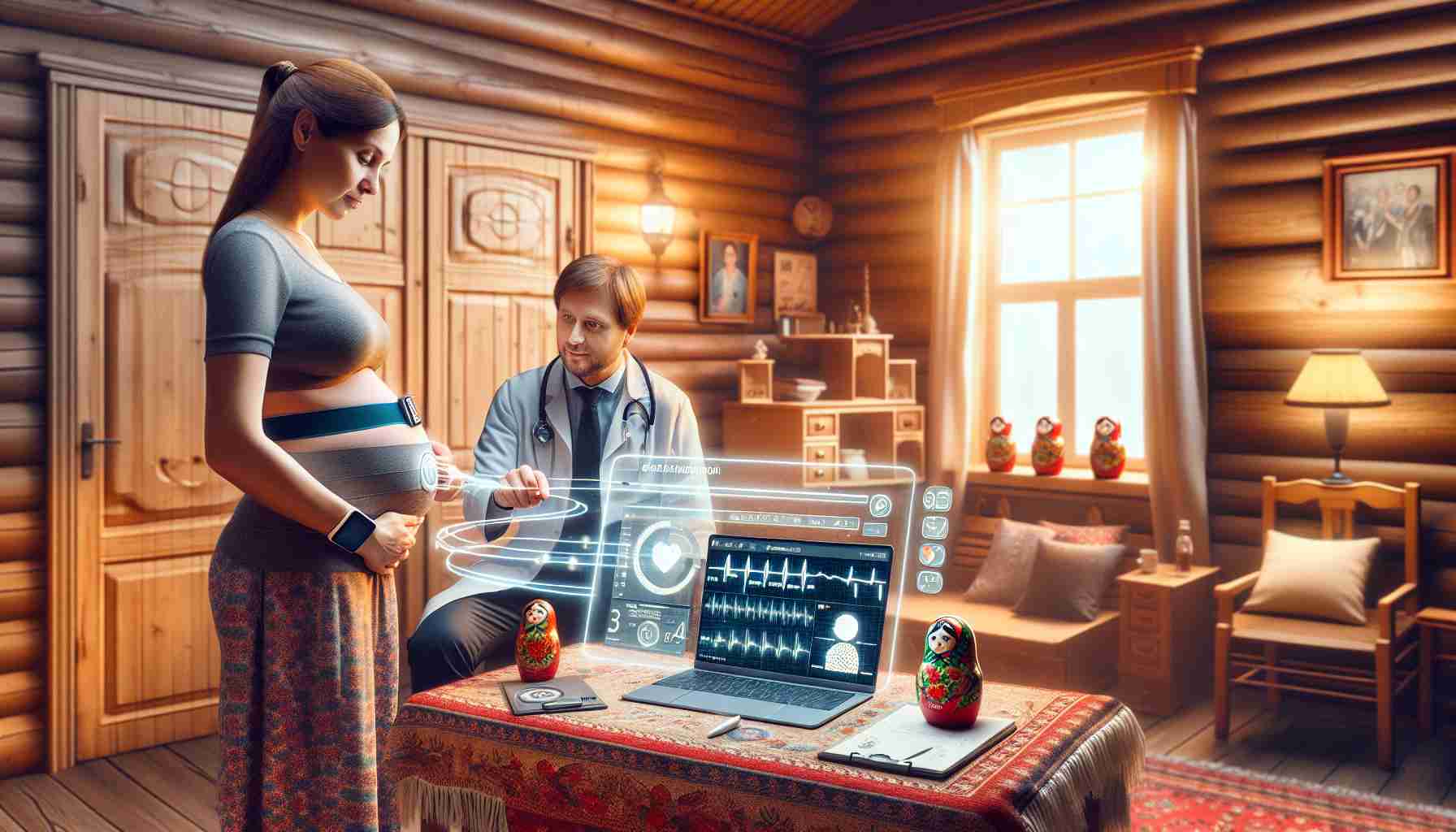Expectant mothers in Russia will soon receive a novel form of prenatal care through a remote monitoring initiative spearheaded by the Ministry of Economic Development.
The focus is on ensuring the health and safety of unborn babies, with the introduction of a cutting-edge device known as a cardiotocograph. This technology is crafted to track the fetus’s heart electrical impulses as well as monitor the uterine tone of the pregnant woman.
However, not all pregnant women in Russia will be provided with this equipment. The targeted distribution will cater specifically to those whose obstetricians detect a fetal monitoring requirement. In cases where detailed observation is deemed essential, this tool will be an invaluable asset.
The device operates seamlessly, transmitting data to a smartphone app via Bluetooth, which is then sent to medical professionals through a specialized system. The real-time information exchange enables obstetricians to make prompt, potentially lifesaving decisions should any unexpected complications arise, such as fetal distress or oxygen deprivation.
Set to commence this year, the pilot project will initially include participants from the Astrakhan and Vladimir regions, as well as the Republics of Altai, Sakha (Yakutia), and Bashkortostan. This initiative represents a significant leap forward in prenatal healthcare, promising a more secure and informed pregnancy for women across these regions.
Facts:
– Remote monitoring technologies in healthcare are increasingly being used worldwide and can be particularly beneficial in areas with limited access to healthcare facilities or specialists. For expectant mothers, such technologies offer the opportunity to detect complications early, which can significantly improve maternal and fetal outcomes.
– Russia spans a vast territory with significant regional disparities in healthcare quality and access. Remote monitoring in prenatal care can help bridge these gaps, ensuring that expectant mothers in isolated regions receive similar standards of care as those in urban centers.
– The cardiotocograph device mentioned in the article has been used in clinical settings for many years to monitor fetal well-being during labor. Its adaptation for remote monitoring is innovative and speaks to a broader trend of telehealth expansion in healthcare.
Important Questions and Answers:
– How will data privacy be managed with the introduction of this technology? Privacy is paramount, especially with health-related data. It is likely that the Russian government and medical providers will need to implement robust data protection measures to safeguard the sensitive information being transmitted.
– What training will be provided for medical professionals and expectant mothers? Effective use of remote monitoring tools will require training both for healthcare providers in interpreting the data and for expectant mothers in using the devices correctly.
Key Challenges or Controversies:
– Equity in Distribution: The targeted distribution may lead to controversies regarding who gets access to this technology, potentially exacerbating existing inequalities in healthcare access.
– Dependence on Technology: There may be a risk of over-reliance on technology, which could lead to reduced face-to-face consultations that are also important in healthcare.
– Infrastructure Requirements: The success of this initiative depends on the availability of reliable internet access and compatible smartphone technology among expectant mothers.
Advantages and Disadvantages:
Advantages:
– Early Detection: The technology enables early detection of complications, which could be addressed quicker and more effectively.
– Convenience: It offers a more convenient monitoring option for expectant mothers, reducing the need for frequent hospital visits.
– Comprehensive Care: It could lead to a more comprehensive care system where obstetricians have more detailed and frequent updates about a patient’s condition.
Disadvantages:
– Technology Limitations: Technical errors or inaccuracies with the devices could potentially lead to misdiagnoses or undue stress.
– Healthcare Dependency: There is a possibility that remote monitoring might replace essential in-person prenatal appointments, which can be crucial for other aspects of prenatal care.
For more information on prenatal care and health systems, you could visit the following websites:
– World Health Organization: www.who.int
– Ministry of Healthcare of the Russian Federation: www.rosminzdrav.ru
– United Nations Population Fund: www.unfpa.org
Please note that the URLs have been provided assuming they are valid, and the links direct to the home pages of the respective organizations involved in healthcare and prenatal care.
